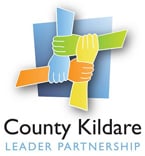
Almost one million children in Ireland are due to return to school this week, and schools are facing the biggest challenge that they have ever faced with the annual return to school. The academic year of 2019/2020 was memorable for its premature interruption in mid- March, making it a school year like no other in living memory. The new academic year of 2020/2021 commences in this new normal within which we are living and faces many obstacles.
Understandably as a parent you might be feeling a mix of emotions as your child prepares to return to school. Perhaps you feel happy that your child will be back in school, meeting their friends and learning again? Or you may be apprehensive and worried about the risks to your child’s health, or the health of someone in your home who may be vulnerable? You may feel that the return to the school routine, earlier bedtimes, making lunches and overseeing homework will be really challenging for your family, as it hasn’t been the routine you have been following for such a long time? Or you may be worried about financial stresses in your household and the extra strains that returning to school brings with all the associated school expenses.
If you have any of these, or any other concerns, your child’s school will be really keen to speak to you and help you resolve these problems as best you and they can together. So don’t hesitate to contact the relevant person in your child’s school for support if you feel that you need it.
Whatever emotions you are feeling about school and its return, the important thing to be aware of is the message you are communicating to your child/children about the return to school. Few parents would wish to worry their children unduly and although the new academic year poses challenges for all parents, children and schools, as parents we can do a lot to make it as smooth as possible for our children no matter what their age.
Be aware of the conversations you are having with other parents about the topic of the return to school within earshot of your children. Children can internalise a lot of information and if they don’t process it correctly it can cause them worry and concern. If you need to speak to the school or other parents/friends about a particular concern just be aware of whether your children are listening, and perhaps try to have these conversations when the children are not present.
You can also normalise the risks which exist for your children regarding Covid-19. For example, most people would accept that there is a risk in driving a car, however, people take adequate precautions to ensure that they stay safe while driving. As drivers we follow the rules of the road, we wear our seatbelts, we ensure our car is in safe working order, when our children are small we strap them into a special car seat etc… thereby alleviating many, although not all of the risks.
Similarly risks exist with Covid-19, but following the most fundamental messages from our public health experts (washing hands, keeping a safe distance, no sharing of toys/resources/food among children and young people in school…..) can do a lot to protect us, in much the same way as driving safely does when we are operating a car.
It is also important to reassure children that their teachers will be doing everything possible to keep them safe in school, and that is why there might be some new and strange rules that will be in place. But those rules are to keep them and their teachers as safe as possible.
There are many sources of information around Covid-19, and it is important that as parents and care givers we rely on information from worthy sources. Information from the school will outline the specific details for your child’s school and is one of the first places to contact if you are uncertain about any aspects of the return to school. The government websites and reliable news sites are also useful. Social media sites can be less reliable since people can post information without it being verified and not everything will be truthful or helpful.
The return to school will hopefully bring many benefits to families. It might be useful to focus as a parent on some of the positives for you as a parent as your child returns to school. Will it provide you the opportunity to go out for a walk or to talk to a friend? If your house is very busy it may be an opportunity now to have some quiet time and do something for yourself? It might be an opportunity to consider linking in with supports in the community to keep yourself positive and hopeful about the future?
Teachers will be supporting the wellbeing of our children when they return to school. Our teachers have been receiving training and guidance about how to do this most effectively and will be promoting a sense of safety, belonging, connectedness, self-worth and last but not least hope to students. Covid-19 poses many challenges, but as parents we owe it to our children to have a sense of positivity and hopefulness for the future, and if we try to stay hopeful and positive as parents, we can support our children to do so as well.
Áine Byrne.
Áine Byrne is the Youth Education Support Worker in County Kildare LEADER Partnership, , and is supporting targeted schools in Co. Kildare to address needs of students and families around attending school.

